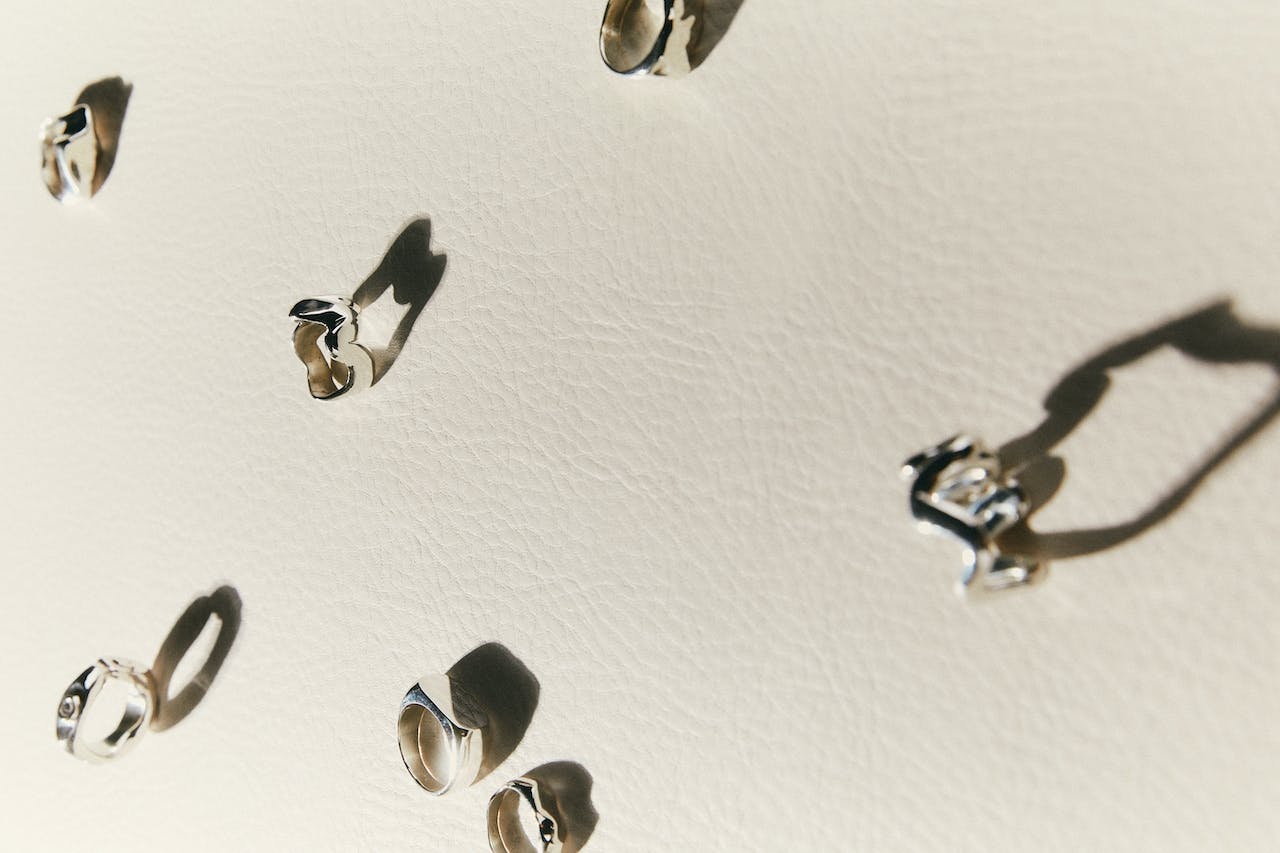Sustainability is important in ecommerce for several reasons, and it is becoming increasingly significant in the industry due to changing consumer preferences, environmental concerns, and regulatory pressures.
It is particularly vital for jewellery brands to consider because it addresses ethical and environmental concerns in the industry. By aligning with consumer values on ethics and sustainability, you can enhance your brand's reputation, emphasise quality and longevity, and differentiate yourself in a competitive market. It is important to remember that sustainable jewellery is not only about the materials but also the values and principles that a brand represents.
Modern consumers, especially younger demographics, are increasingly concerned about the ethical and environmental impacts of the jewellery products they purchase. Many precious metals and gemstones used in jewellery for example come from regions with environmental and ethical concerns, including mining practices that can harm local communities and ecosystems. Sustainability can then become a selling point for jewellery brands, attracting the rising demographic of consumers who need reassurance in the form of validated information as to the origin of materials and the wider environmental impact of their purchase.
To help businesses validate and amplify their sustainability credentials throughout the customer journey, we’ve partnered with Provenance, the new global standard for consumer sustainability. Their platform enables businesses to be transparent about their impact, so that they can realise their sustainability ambitions and future-proof their market share. This empowers customers to cut through the greenwash and make informed choices at checkout, by including details about the sourcing of ingredients or materials, production processes, and environmental impact.

We spoke to Provenance about what advice they would give to jewellery brands looking to make the move to becoming more ethical and help meet the growing demand for sustainable and ethical consumption:
1. How can jewellery brands who are investing in positive impact initiatives demonstrate this to consumers?
Brands are doing amazing work behind-the-scenes, but it can be hard to surface these elements where it matters most: throughout the customer journey. Our Proof Point technology enables brands to communicate their positive impact efforts from discovery to checkout, with interactive icons that represent a claim about a business or product connected to real data from the supply chain.
Each Proof Point is part of the Provenance Framework, a collection of 125+ jargon-free claims about social and environmental impact. Using technology, they connect what brands say to real data from the supply chain. This means you can share your sustainability claims, from community initiatives and charitable programmes to packaging recyclability and organic ingredients.
2. What tips or incentives would you recommend for jewellery brands to encourage shoppers to make sustainable choices?
The benefits of embedding sustainability messaging into marketing campaigns is well documented, as today’s consumers are more planet conscious than ever before. Jewellery brands can encourage this by:
Consistently embedding sustainability messaging across every touchpoint
Adding filters and edits based on sustainability themes (e.g. Vegan, Recyclable Packaging)
Running campaigns in tandem with key impact theme days (e.g. World Earth Day).
63% of customers identify sustainability (e.g. recycled packaging, reduced carbon emissions) as an important aspect in staying loyal to a brand. Businesses are now responding to this fact, offering discounts or complimentary products for customers who recycle product packaging in-store; enhancing loyalty.
Rare Consulting, 2023
By rewarding sustainable choices with discounts, businesses can simultaneously boost brand perception, customer sentiment and customer lifetime value. Provenance’s data provides businesses with the foundation for a customer loyalty scheme based on sustainable purchases.
3. How can jewellery brands communicate their membership with recognised sustainability certifications?
Sustainability certification programs are a tried and tested way to make social or environmental claims about your brand and its products. What’s more, sustainability certifications also carry huge weight with today’s eco-conscious consumers; more than four in five (85%) trust an independent verifier, making it the most highly trusted source of sustainability information when consumers are in purchasing mode. Provenance’s Proof Points can help amplify certifications when you have them, via interactive and engaging Proof Points on product pages, sustainability pages and more spaces throughout the customer journey.
Different certifications have different requirements, so it’s important to select a sustainability certification that matches the values you want to portray to customers. For example, ANUKA Jewellery surfaces their certifications from 1% for the Planet and Fairmined using Provenance’s Proof Points. 1% for the Planet means this business donates 1% of its annual revenue to environmental solutions. The Fairmined mark is based on four principles: mark is based on four principles: Organisational development, such as a guaranteed minimum price; Environmental protection, such as small-scale operations with low environmental impact; Social development, meaning there is no child labour or links to conflict situations; and lastly that there are Work conditions, such as stable jobs for miners and their right to organise.

B Corps are a new type of corporation which are purpose-driven, that value people and the planet. Certified B Corps, are companies verified by B Lab to meet the highest standards of social and environmental performance, transparency and accountability.
4. What is the importance of conducting a carbon footprint analysis of your business, and what steps can jewellery brands take to reduce emissions?
The jewellery industry may not be the worst offender, but it nevertheless has a responsibility to tackle its impact on the climate. By conducting a carbon footprint analysis, businesses can become more aware of their impact and understand the areas they need to reduce their emissions the most.
There are many ways jewellery businesses can reduce emissions, but some of the best techniques we see are:
Switching to climate-friendly packaging: When it comes to reducing carbon emissions, packaging is a key lever at businesses’ disposal, not least because it’s an area where many brands still have direct control. By using recycled materials in their packaging, for example, brands can use less energy in manufacturing. Jewellery brands can also reduce their emissions by minimising packaging and avoiding unnecessary secondary packaging and gift bags.
Consider upcycled materials: Brands are increasingly turning to upcycling as a way to reduce their products’ footprint. This approach turns waste ingredients into new functional ingredients, thereby minimising resource consumption and emissions.
Cut carbon from your operations: While the above are ways in which brands can reduce emissions generated in the upstream and downstream value chain (or ‘Scope 3’ emissions). Although tackling these Scope 3 emissions provides the biggest opportunity for brands to reduce their carbon footprint, it's important to minimise emissions at an operational level too. This includes emissions from direct operations (‘Scope 1’) and indirect emissions from the energy they buy (‘Scope 2’). Brands can make these reductions by increasing energy efficiency and sourcing renewable energy sources.
If you want, you can speak with the Provenance team and turn your brand's sustainability claims into ROI.

I look after Unified's overarching marketing strategy and keep our marketing engine running with fresh content, speaking opportunities, award submissions and great partnerships.




